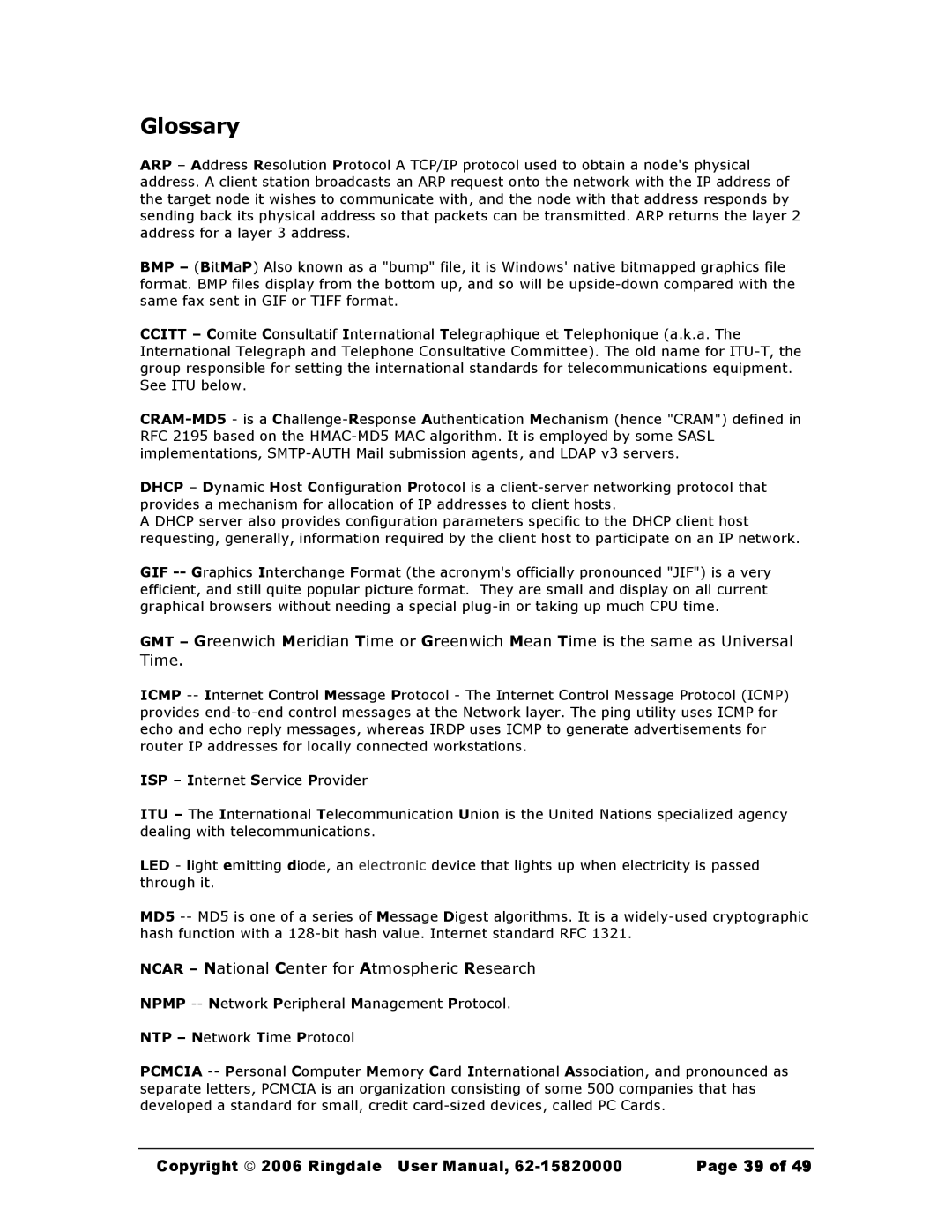Glossary
ARP – Address Resolution Protocol A TCP/IP protocol used to obtain a node's physical address. A client station broadcasts an ARP request onto the network with the IP address of the target node it wishes to communicate with, and the node with that address responds by sending back its physical address so that packets can be transmitted. ARP returns the layer 2 address for a layer 3 address.
BMP – (BitMaP) Also known as a "bump" file, it is Windows' native bitmapped graphics file format. BMP files display from the bottom up, and so will be upside-down compared with the same fax sent in GIF or TIFF format.
CCITT – Comite Consultatif International Telegraphique et Telephonique (a.k.a. The International Telegraph and Telephone Consultative Committee). The old name for ITU-T, the group responsible for setting the international standards for telecommunications equipment. See ITU below.
CRAM-MD5 - is a Challenge-Response Authentication Mechanism (hence "CRAM") defined in RFC 2195 based on the HMAC-MD5 MAC algorithm. It is employed by some SASL implementations, SMTP-AUTH Mail submission agents, and LDAP v3 servers.
DHCP – Dynamic Host Configuration Protocol is a client-server networking protocol that provides a mechanism for allocation of IP addresses to client hosts.
A DHCP server also provides configuration parameters specific to the DHCP client host requesting, generally, information required by the client host to participate on an IP network.
GIF -- Graphics Interchange Format (the acronym's officially pronounced "JIF") is a very efficient, and still quite popular picture format. They are small and display on all current graphical browsers without needing a special plug-in or taking up much CPU time.
GMT – Greenwich Meridian Time or Greenwich Mean Time is the same as Universal Time.
ICMP -- Internet Control Message Protocol - The Internet Control Message Protocol (ICMP) provides end-to-end control messages at the Network layer. The ping utility uses ICMP for echo and echo reply messages, whereas IRDP uses ICMP to generate advertisements for router IP addresses for locally connected workstations.
ISP – Internet Service Provider
ITU – The International Telecommunication Union is the United Nations specialized agency dealing with telecommunications.
LED - light emitting diode, an electronic device that lights up when electricity is passed through it.
MD5 -- MD5 is one of a series of Message Digest algorithms. It is a widely-used cryptographic hash function with a 128-bit hash value. Internet standard RFC 1321.
NCAR – National Center for Atmospheric Research
NPMP -- Network Peripheral Management Protocol.
NTP – Network Time Protocol
PCMCIA -- Personal Computer Memory Card International Association, and pronounced as separate letters, PCMCIA is an organization consisting of some 500 companies that has developed a standard for small, credit card-sized devices, called PC Cards.
